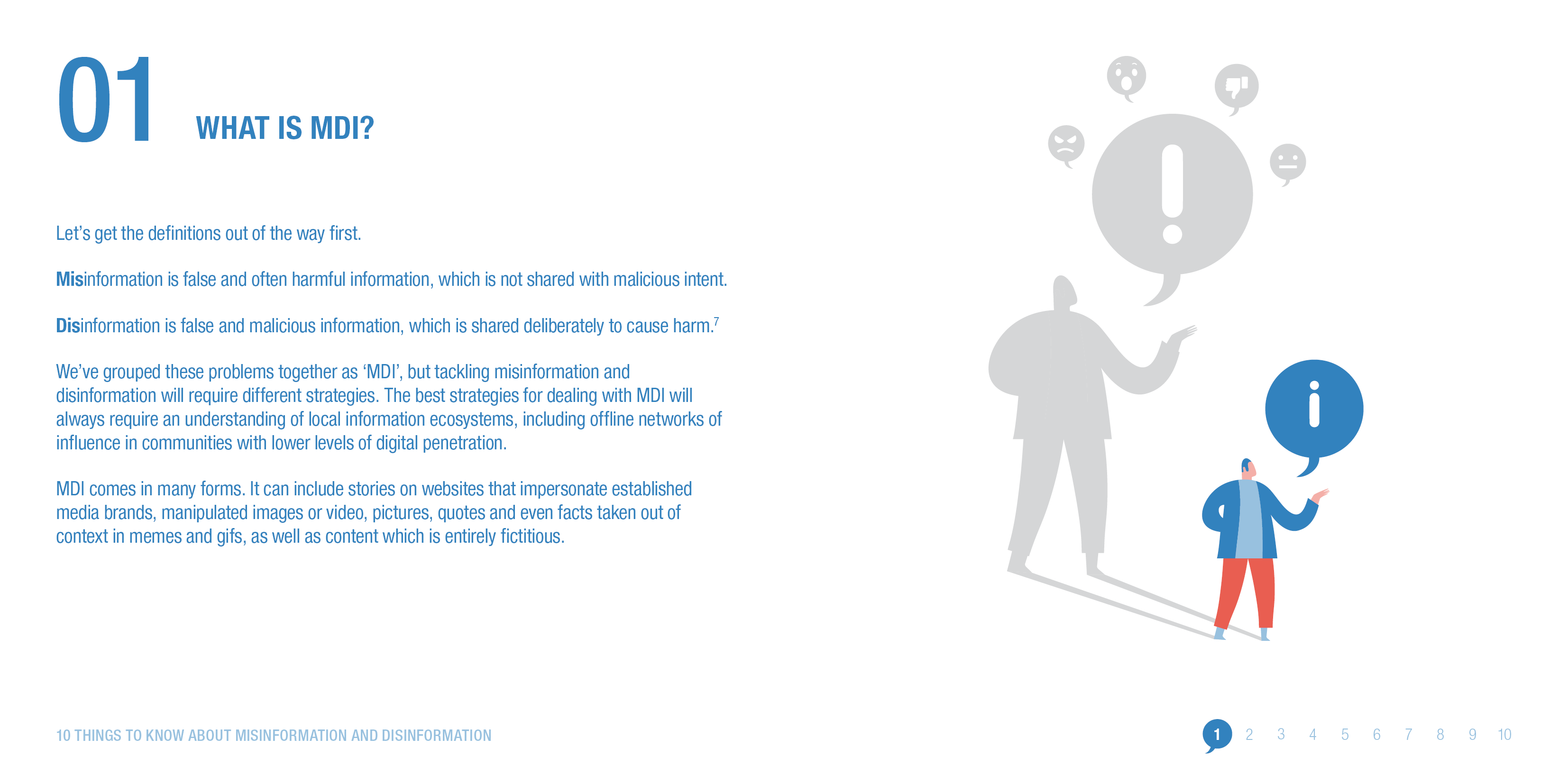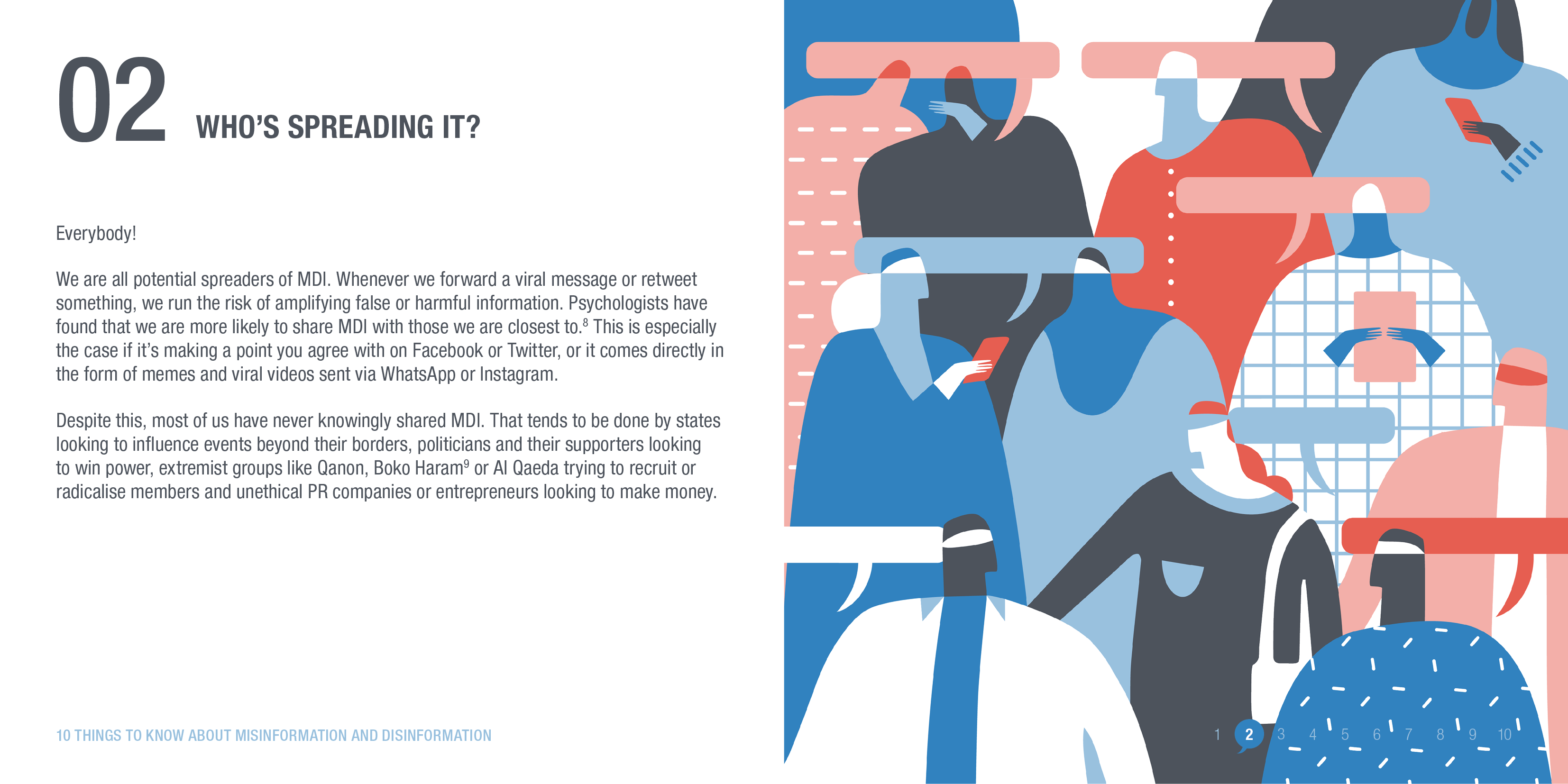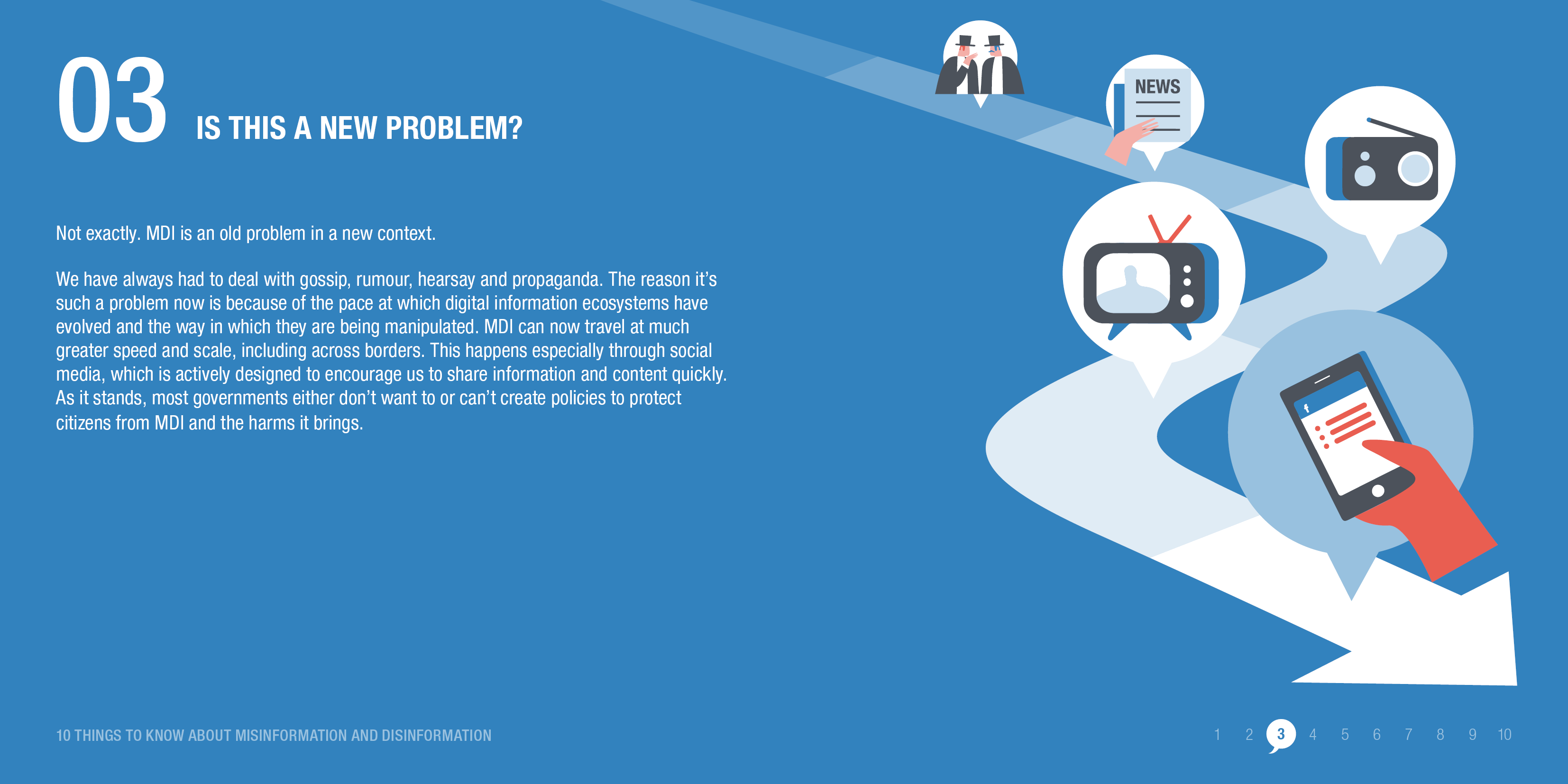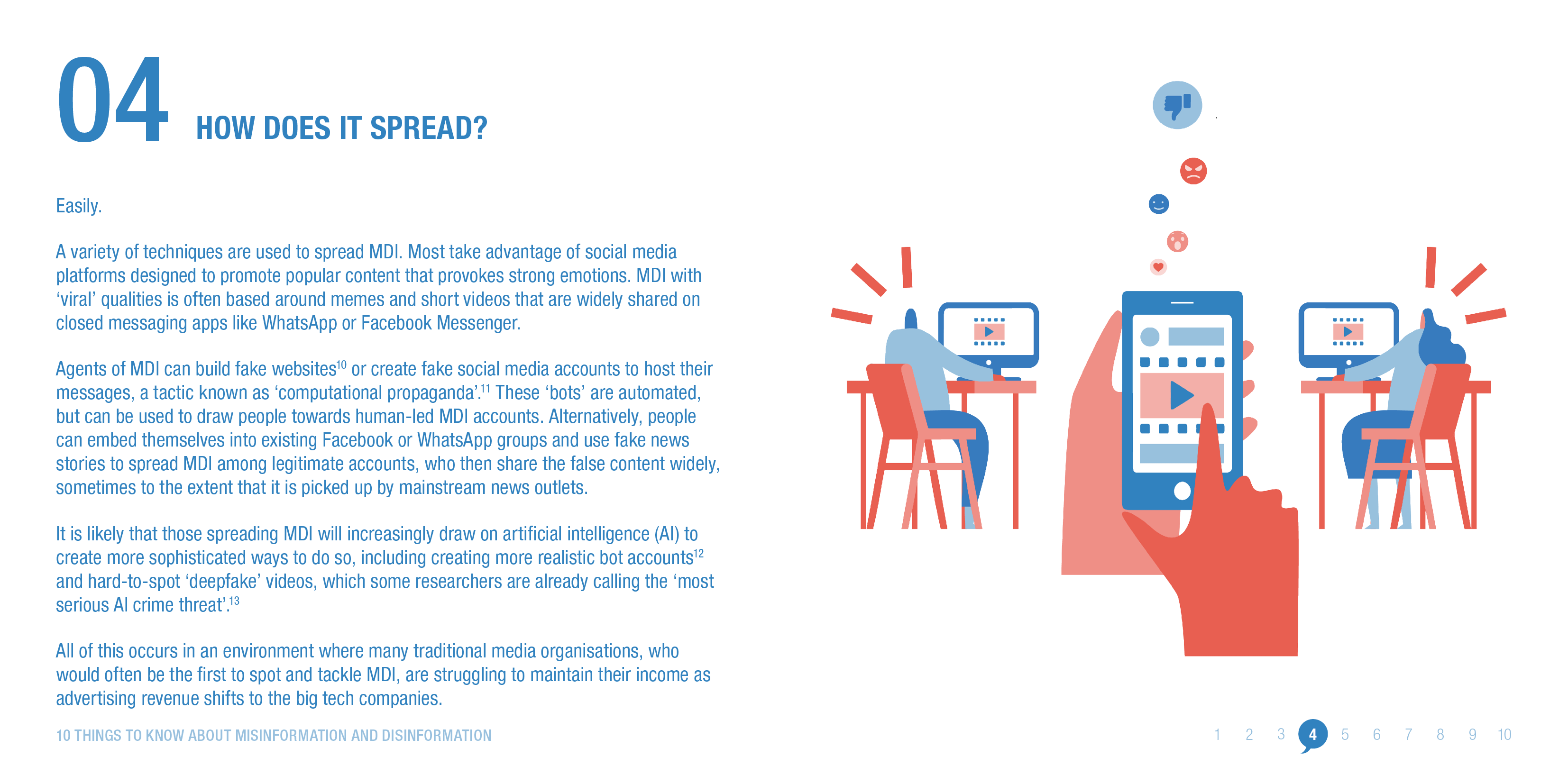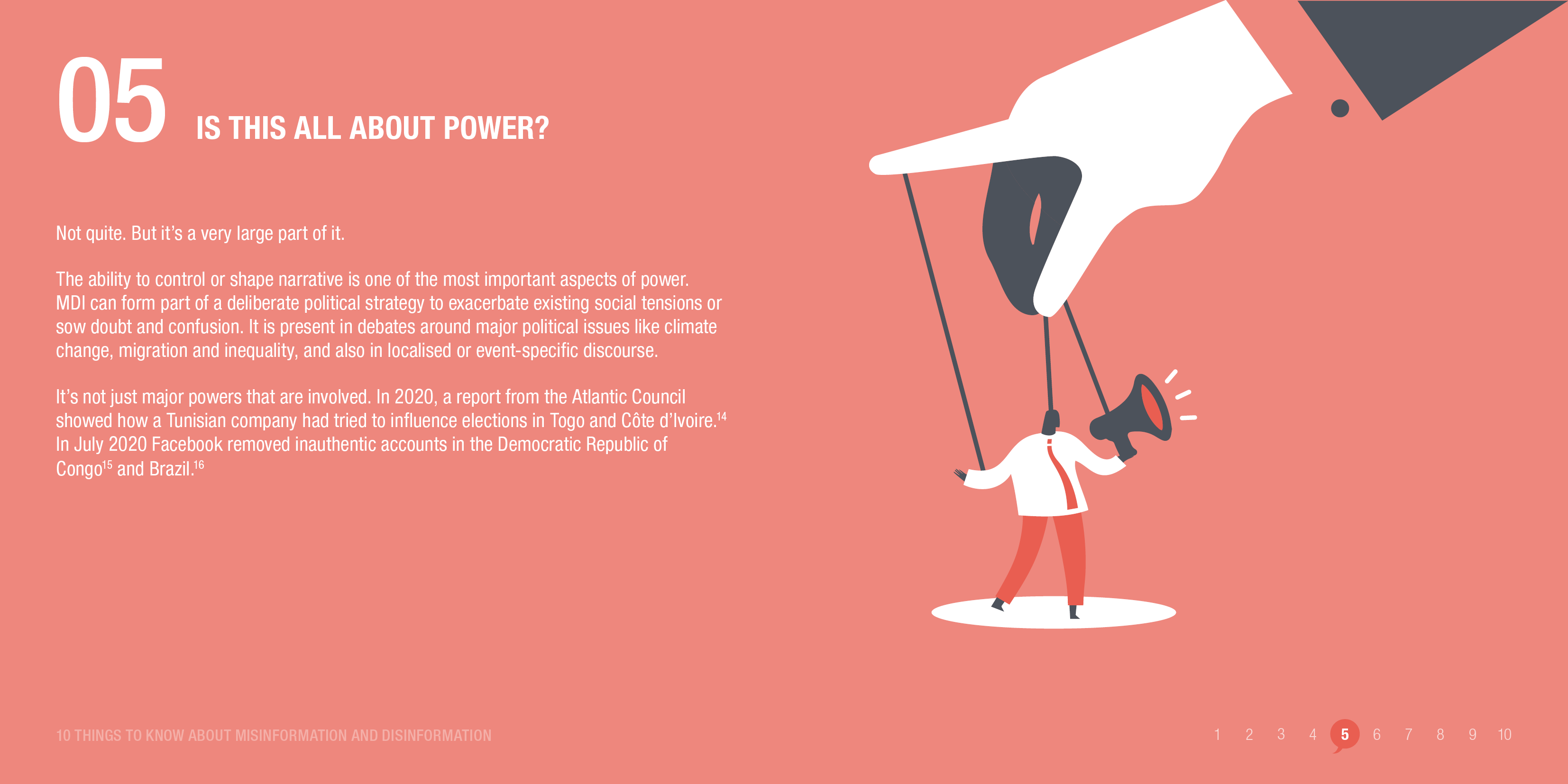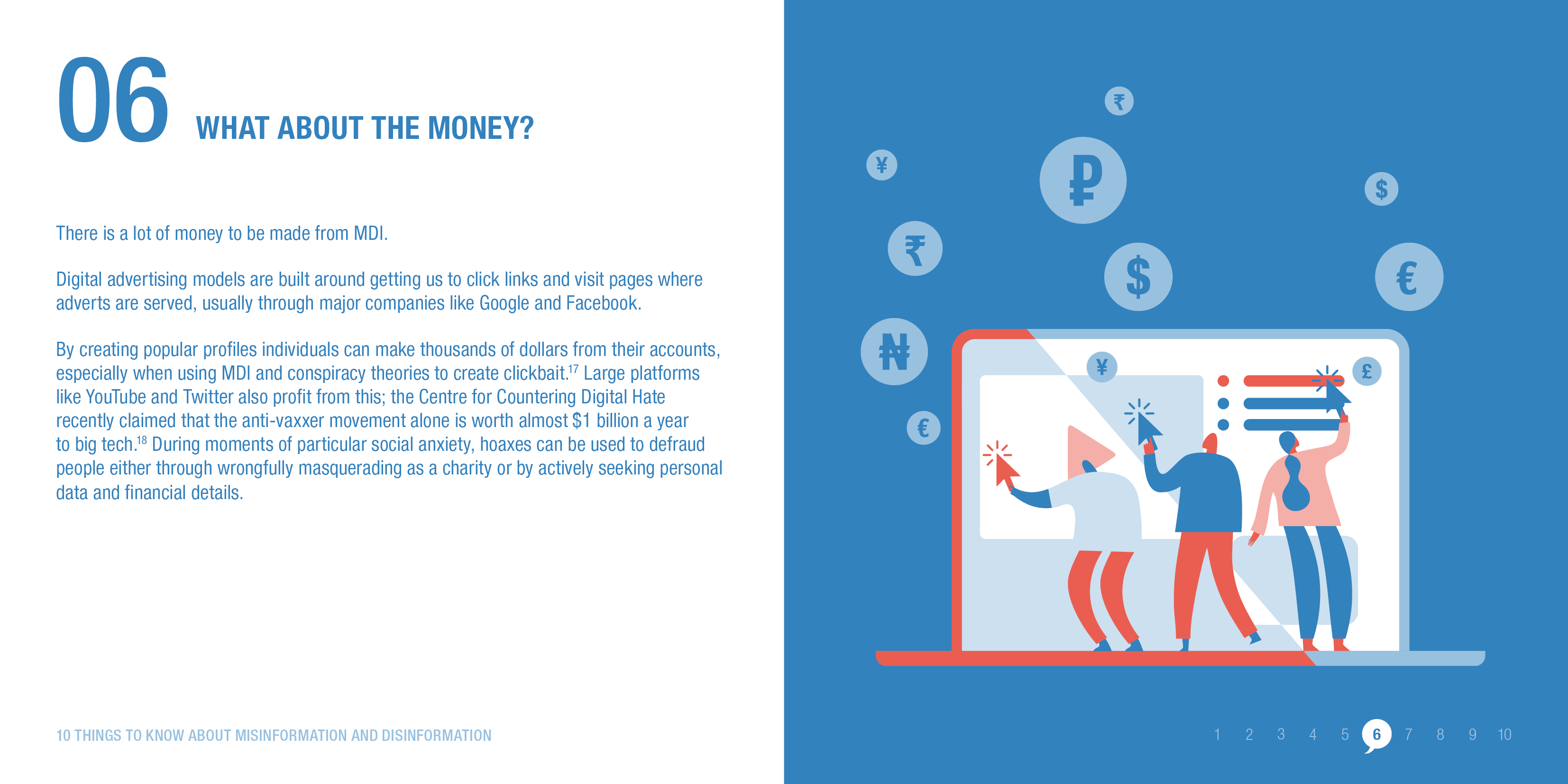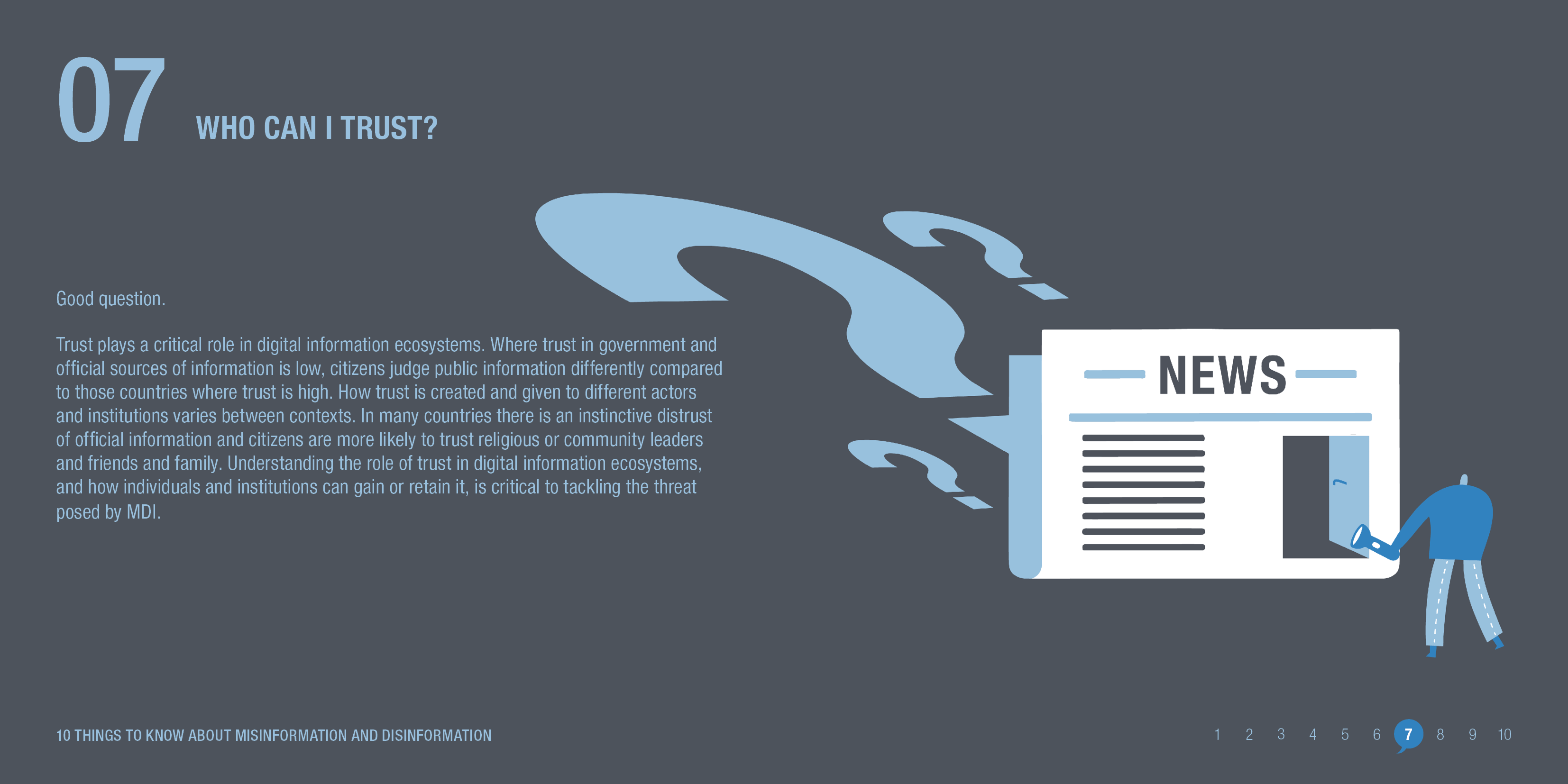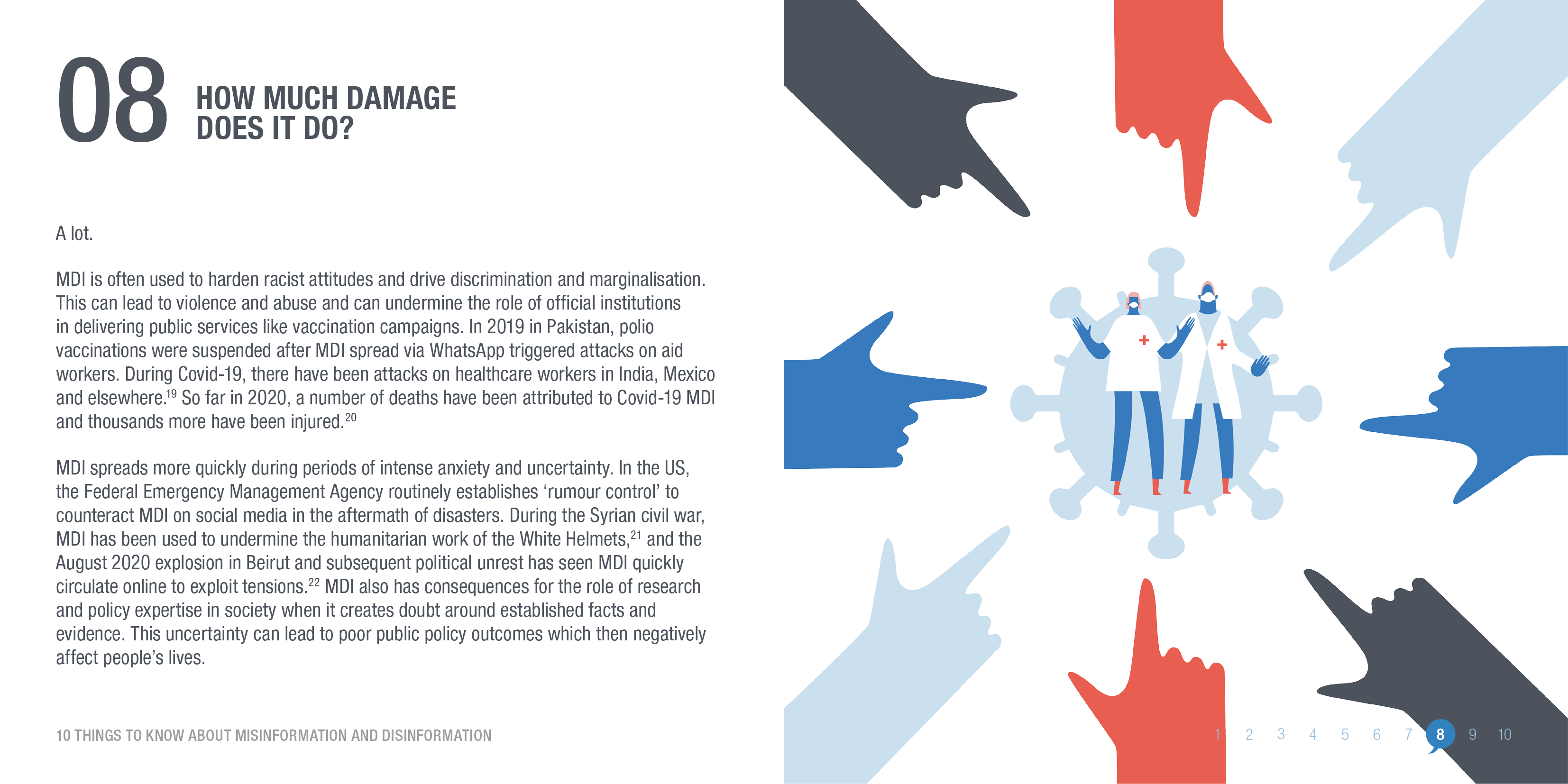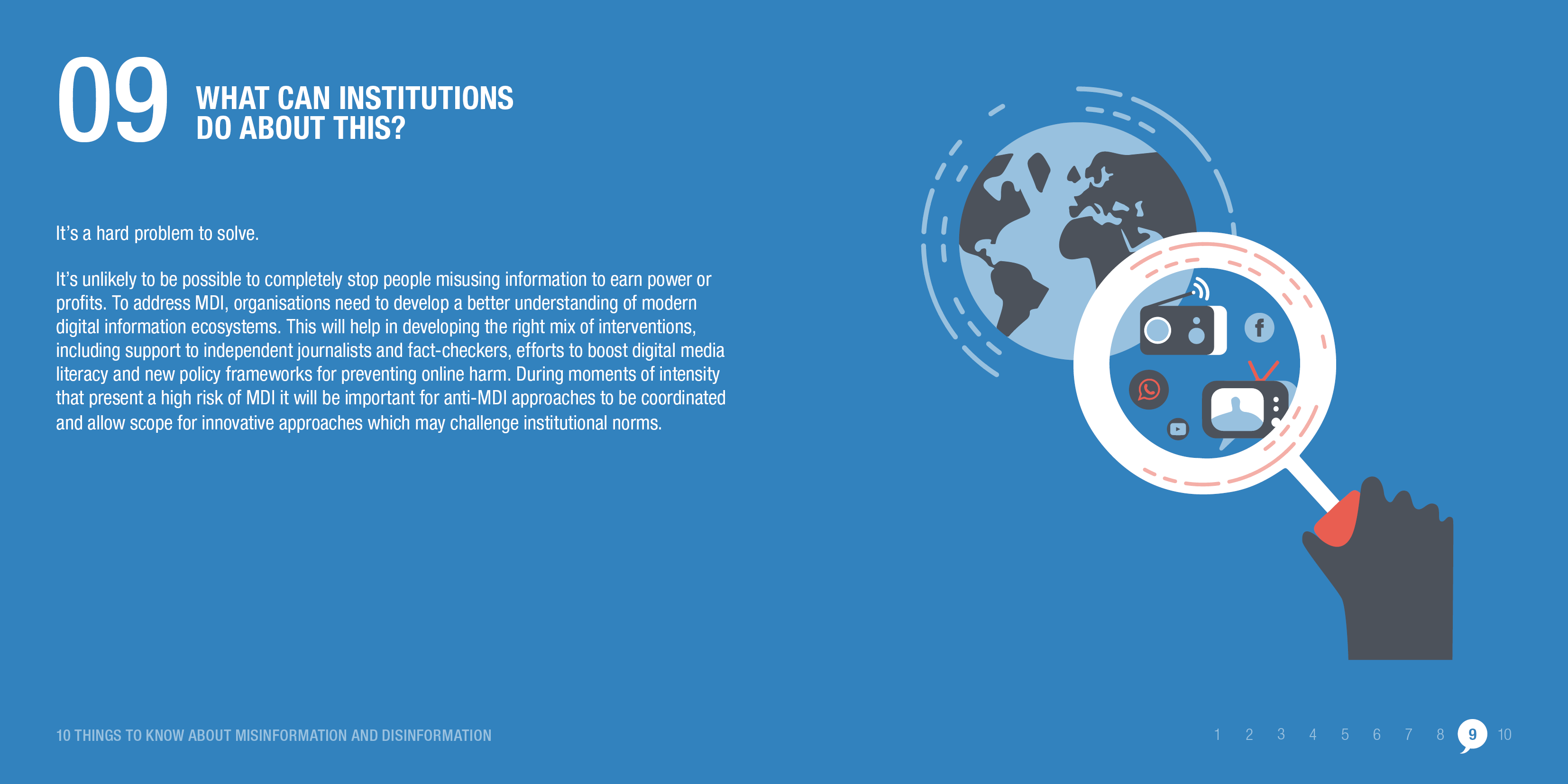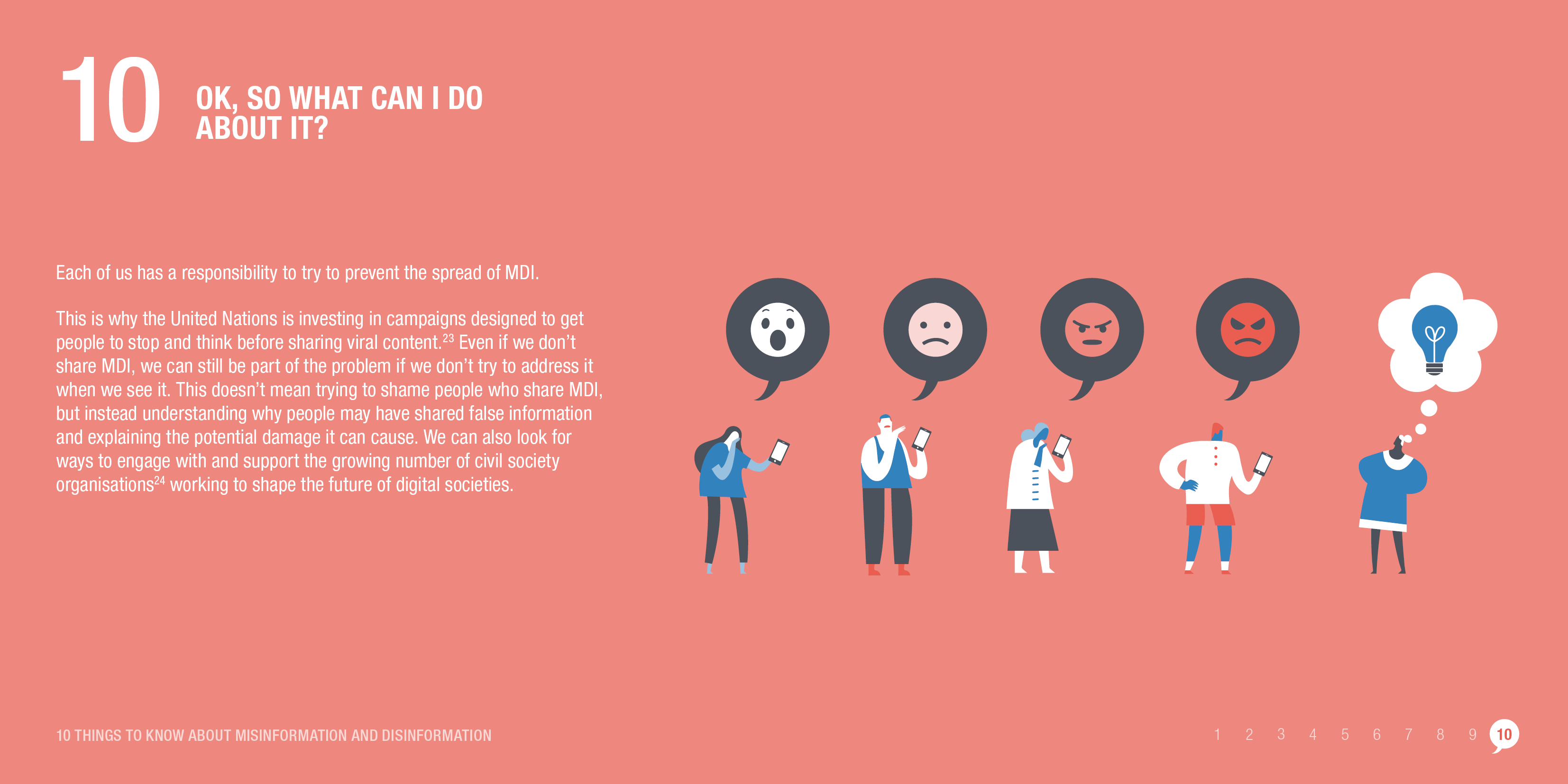By accident or design, the internet and social media have created the ideal conditions for a huge increase in false information and conspiracy theories. This can cause real harm offline, especially because digital literacy and digital policy are both currently unable to keep up with the pace of change.
In recent years, major democracies have had to investigate foreign interference in their digital information ecosystems. Over a third of Europeans now encounter so-called ‘fake news’ every day. In June 2020, the World Health Organization held its first-ever conference looking at ‘infodemiology’ in response to misinformation related to Covid-19. Now established fact-checking organisations are emerging across the world, and major media organisations have misinformation and disinformation reporters.
This briefing note outlines 10 things you need to know about misinformation and disinformation and how they can be tackled.
Jonathan Tanner
